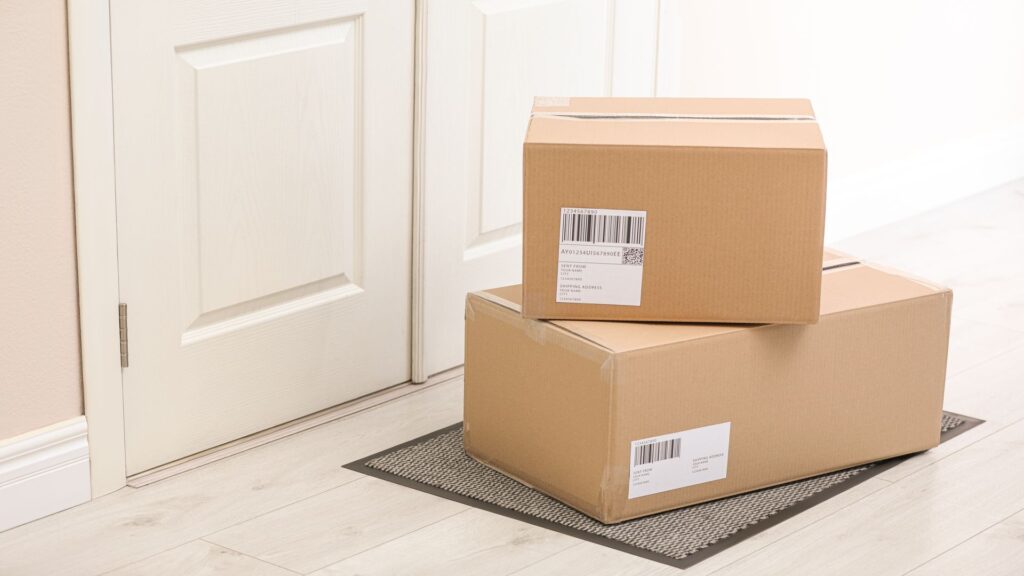What would you feel if you received a free item on a package you didn’t order? While some people will feel happy to receive a freebie or an unexpected package, beware because it might be a brushing scam. Don’t compromise your bank details and finances because of receiving free stuff from people or companies you don’t know. This article will explain how you can protect yourself from a brushing scam.
What Is A Brushing Scam?
A brushing scam involves receiving a package with an unordered product. The box may contain a product or be empty, usually from a third-party seller.
While it’s generally harmless, online marketplace sellers usually fish for positive feedback or fake reviews through a brushing scam. Recipients often wonder why the sender knows their name, address, and phone number, causing uneasiness and feeling of being tracked and unsafe.
This scam makes reviews look legitimate for sellers to gain more sales. The scammer deceives online shoppers, making them think actual transactions occurred. Browse here to learn more about how a brushing scam works.
Ways To Protect Yourself From Brushing Scams
You probably heard some news and personal stories about people’s online bank accounts being hacked or defrauded. Victims were surprised to see their credit card bills skyrocketing or their online back accounts zeroed out. While they’re usually harmless, brushing scams may also lead to these financial problems.
Check out the following tips to help safeguard yourself from a brushing scam:
- Monitor Your Online Accounts
Whenever you buy an item online through online marketplaces or dedicated retail brand app stores, you might not be aware that you’re allowing these platforms to save your personal and credit card information. This scenario often happens when you accidentally click to ‘save’ or ‘allow’ on a pop-up window when you buy an item once from a seller. Hence, regular online account monitoring is a must.
Don’t compromise your personal information by checking your bank accounts. Scammers can steal and make purchases using your debit or credit card. So, verifying with your bank any connected website or app to your debit or credit card is crucial. You can request your bank to remove any selling platform from automatically debiting money from your account, especially for unauthorized transactions or brushing scams.
- Always Update Your Passwords
It’s good practice to change your passwords every 30 days. Your password must be strong enough to avoid other people guessing and using it to buy items using your account. Use a combination of capital and lowercase letters, symbols, and numbers to strengthen your password. As much as possible, don’t use the same password across your other online accounts.
If you’re using a public computer or laptop, beware of clicking ‘save’ or ‘yes’ when a prompt asks you if the device or browser can save your username and password. This is often suggested to save the user’s time from logging in on the same website using the computer. But this option is only applicable if you’re using your device. Otherwise, you can compromise your account.
- Don’t Forget To Logout Before Device Repair
If your smartphone, tablet, laptop, or desktop is malfunctioning and needs repair, don’t forget to log out before handing the device to the repair technician. This step is crucial to avoid exposing your personal information and banking details to unauthorized people.
If you can’t turn on your device or it’s completely dead, you can access your search engine account, online bank account, or shopping account on a working device. Remove the connection of your failing phone or computer from your accounts. Go to your account settings and unlink the device.
- Avoid Posting Selfies Of Your Packages
Some people take selfies or photos of the packages they receive online and post them on social media. While you only want your social circle to see your post, you’ll never know the other people who might be looking at your account. Therefore, you must be keen about posting any photo containing your address, number, and other personal details.
Moreover, read the terms and cybersecurity policies of the online marketplaces you’ll be dealing with. Beware of seller calls from anonymous numbers or emails asking to provide your personal information or a photo of your previous package receipts. These are likely forms of phishing scams.
- Logout After Using A Public Computer
Don’t forget to log out from an online marketplace when using a public computer. If you don’t, the following user can access your shopping account and change your address or order items using your information.
Conclusion
Don’t be a victim of a brushing scam. Be mindful of your online shopping behavior to ensure the privacy and security of your credentials on apps and websites. If you feel threatened or uncomfortable receiving unordered packages, you may raise this problem with the concerned authorities.











